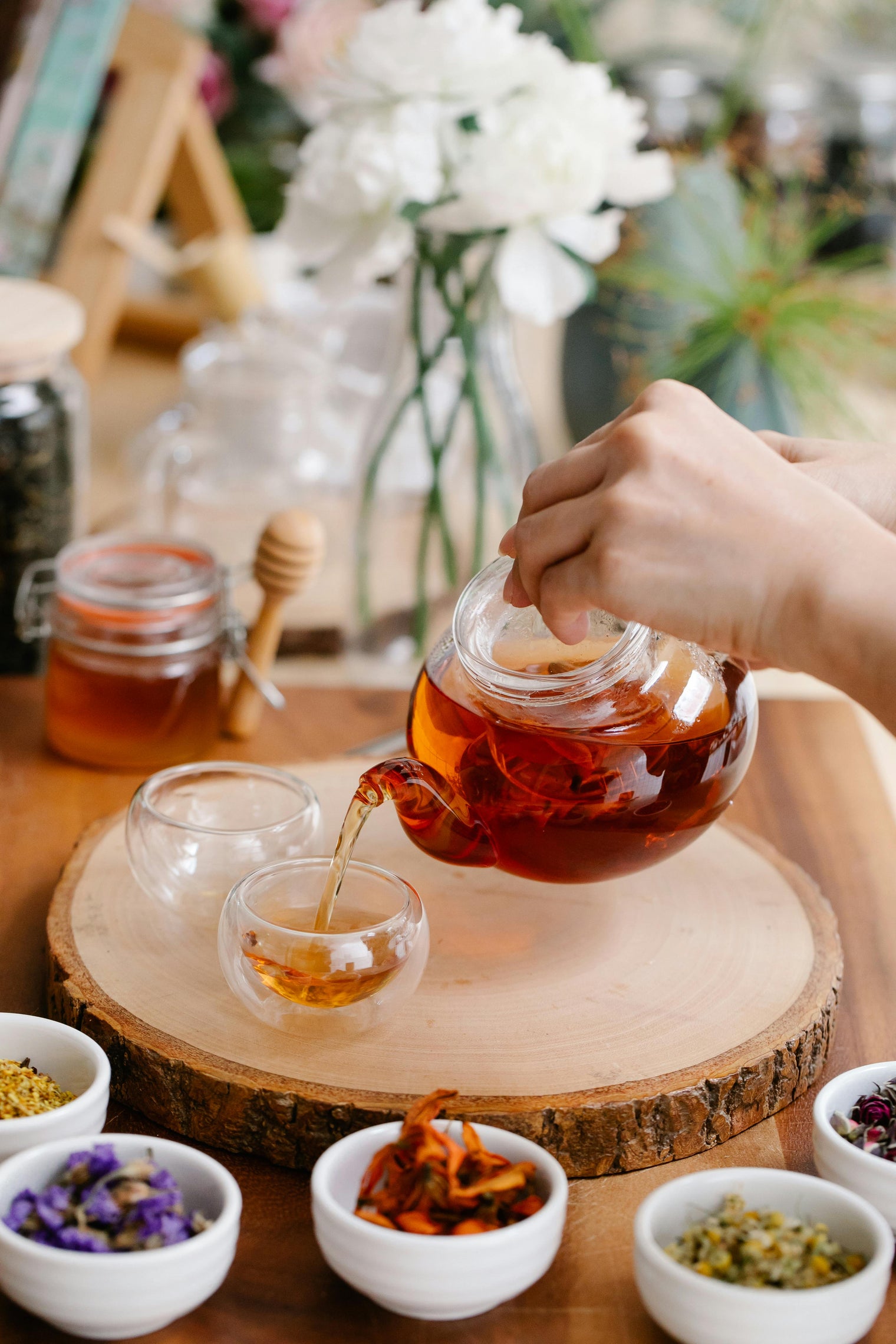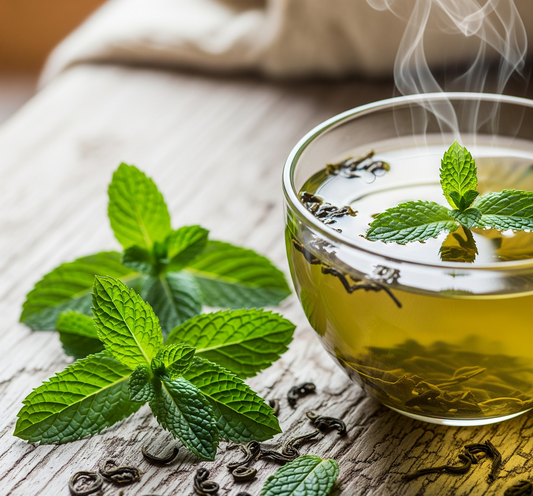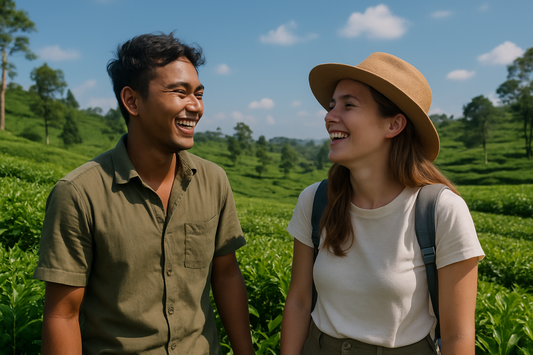Discover the truth about herbal tea and caffeine in our comprehensive guide. While most herbal teas, like chamomile and peppermint, are naturally caffeine-free, some blends may contain caffeine from ingredients like yerba mate. Learn about the health benefits of herbal teas, popular varieties, and tips for brewing the perfect cup. Whether you're looking to relax before bedtime or enjoy a refreshing drink, herbal tea offers a flavorful, caffeine-free option for all tea lovers.
A name synonymous with health and well-being, herbal tea has become a beloved beverage among tea drinkers the world over. One common question that arises is, “Does herbal tea have caffeine?”. Here in this article, we will take a deeper look into the caffeine content of herbal teas. We will also clarify what herbal tea is, and discuss some of the most popular varieties.
What is Herbal Tea?
To get things started, let’s first understand what herbal tea is. Also known as tisanes, it is important to first understand that herbal tea is not made from the traditional tea plant, Camellia Sinensis, which is used to produce black, green, oolong, and white teas.

Instead, herbal teas are crafted from a variety of plants, including flowers, leaves, roots, and seeds. What this broad classification means is that herbal teas offer a wide range of flavors and health benefits, making them a popular choice for tea drinkers. Let’s explore some of the most common types of herbal teas:
- Chamomile: Known for its calming properties and often consumed before bedtime.
- Peppermint: Known for its refreshing taste and used for digestive relief.
- Ginger: Renowned for its anti-inflammatory effects and warming qualities.
- Hibiscus: Celebrated for its tart flavor and potential heart health benefits.
- Rooibos: A naturally caffeine-free tea from South Africa, rich in antioxidants.
Does Herbal Tea Have Caffeine?
Since most herbal teas do not contain the leaves of the Camellia Sinensis plant, they are naturally caffeine-free. This makes herbal tea an excellent choice for those looking to reduce or cut caffeine from their diet.
According to Sporked, herbal teas like chamomile, peppermint, and rooibos are completely free of caffeine, making them ideal for evening consumption or for those who want to enjoy a warm beverage without the stimulating effects of caffeine.
However, there are some exceptions. Some herbal blends may include ingredients that naturally contain caffeine, such as:
- Yerba Mate: A traditional South American drink that contains caffeine.
- Guayusa: Another herbal plant with caffeine content.
To know for certain whether herbal tea has caffeine, make it a point to check the label or product information. Most established and reputable brands will clearly state if their herbal tea contains any caffeine.
Read more: Debunking The Age-Old Myth: Is Yerba Mate Tea?
The Benefits of Caffeine-Free Herbal Teas

Choosing caffeine-free herbal teas can offer several benefits:
- Better Sleep: Many people prefer herbal teas before bedtime as they promote relaxation without the stimulating effects of caffeine. Chamomile tea, for example, is often used to help with sleep.
- Digestive Health: Herbal teas like peppermint and ginger can aid digestion without the jittery feelings that caffeine can sometimes induce.
- Hydration: Herbal teas are an excellent way to stay hydrated throughout the day. Since they are caffeine-free, they won’t contribute to dehydration like caffeinated drinks might.
- Rich in Antioxidants: Many herbal teas are rich in antioxidants, which can help combat oxidative stress in the body. Rooibos tea, for example, is packed with antioxidants and is naturally caffeine-free.
Check out our premium selection of herbal teas from Nepal Tea Collective.
Comparison of Caffeine Content
To give you a better understanding, here’s a comparison of caffeine content in various types of teas:
- Black Tea: An average of 40-70 mg of caffeine per 8-ounce cup.
- Green Tea: An average of 20-45 mg of caffeine per 8-ounce cup.
- Oolong Tea: An average of 30-50 mg of caffeine per 8-ounce cup.
- White Tea: An average of 15-30 mg of caffeine per 8-ounce cup.
- Herbal Tea: 0 mg of caffeine per 8-ounce cup (with exceptions like Yerba Mate and Guayusa).
As you can see, herbal teas stand out as a caffeine-free option, making them a great choice for those looking to avoid caffeine altogether.
Brewing Time and Caffeine Content
Several factors ranging from steeping times to higher temperatures influence the caffeine content in teas. For traditional teas, longer steeping times and higher temperatures generally result in higher levels of caffeine. However, since herbal teas are typically caffeine-free, these factors do not apply in the same way.

If you're brewing herbal tea, you can steep it for as long as you like without worrying about increasing caffeine levels (in most cases). This flexibility allows you to extract the full range of flavors and benefits from the herbs you choose. Just remember to not wait for the liquor to cool down if you’re looking to drink your beverage hot.
Tips for Brewing Herbal Tea
There are a few important things to keep in mind if you’re looking to craft a perfect batch of herbal tea. To get the most out of your herbal tea, consider the following brewing tips:
- Use Fresh Ingredients: Whenever possible, use fresh herbs or high-quality dried herbs to reap the best flavor and health benefits.
- Steeping Time: Herbal teas generally benefit from longer steeping times. While traditional teas typically need 3 to 4 mins, aim for 5-10 minutes to fully extract the flavors and benefits.
- Water Temperature: Most herbal teas can be brewed with boiling water (around 200°F or 93°C). However, delicate herbs like chamomile and hibiscus may require slightly cooler, luke warm water.
- Experiment with Blends: Don’t hesitate to mix different herbal teas to create your unique flavor combinations. For example, combining peppermint and ginger or chamomile tea with ginger can create a refreshing and soothing blend.
Pick from a range of the best herbal teas from Nepal Tea Collective today!
In summary, the answer to "Does herbal tea have caffeine?" is predominantly No. Most herbal teas are caffeine-free, making them a perfect choice for those looking to avoid caffeine. While some herbal blends may contain caffeine due to specific ingredients, most herbal teas, such as chamomile, peppermint, and rooibos, lemongrass do not contain any caffeine.
If you're considering trying herbal tea, you can enjoy a wide variety of flavors without the jitters associated with caffeinated beverages. Always check the packaging for specific information about the tea you choose, especially if you're concerned about caffeine content. With so many delicious options available, herbal tea can be a delightful addition to your daily routine, whether you need a calming cup before bed or a refreshing drink during the day.




